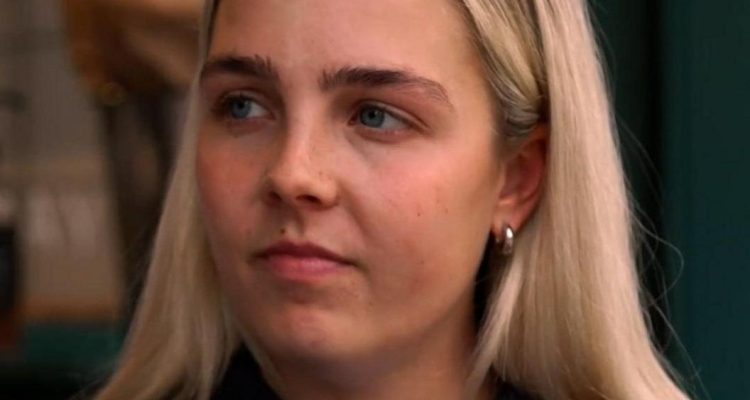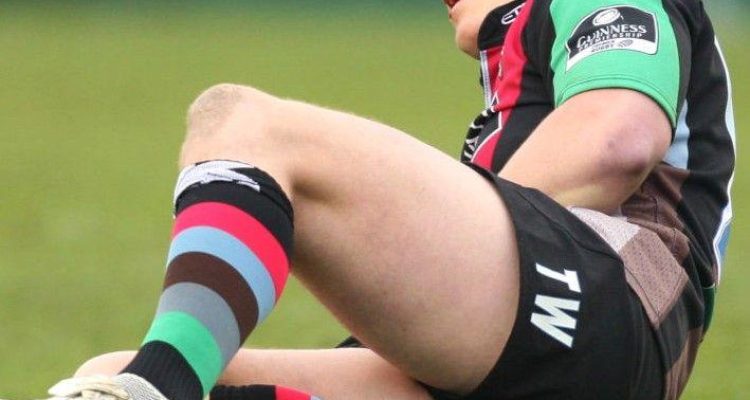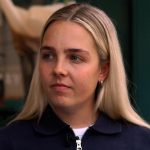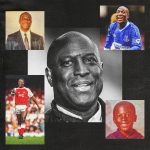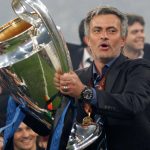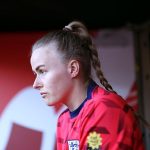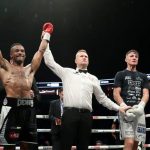'I signed Barcelona deal – then had a stroke at 24'
As England and Barcelona goalkeeper Ellie Roebuck sips her flat white in the Spanish sunshine outside her favourite coffee shop, she looks like a player who has the world at her feet.
But this is a very different picture from 12 months ago.
Last February she was told that, at the age of 24,she had suffered a strokeand was left fearing she would never play football again.
"I'm lucky because I should have lost my vision," she tells BBC Sport. "I should have lost my peripheral vision for sure. The majority of people that suffer a stroke [like mine] do that. So, I probably should have been blind, which is quite a miracle that that didn't happen."
Roebuck was part of the Lionesses squad that won the Euros in 2022 and reached the World Cup final in the summer of 2023. But the former Manchester City keeper could never have predicted that six months after that match in Sydney, her world would be turned upside down.
This is Roebuck's story – one of sport's remarkable comebacks.
I could have lost my vision – Roebuck on stroke
After returning from World Cup duty in Australia, Roebuck's season did not go to plan at Manchester City – a club she had been at since the age of 15, making her debut as a teenager in 2016.
The Sheffield-born keeper found herself frozen out of the first team and did not make an appearance in the first half of the season, but she was also struggling off the pitch.
It was around Christmas 2023 when Roebuck first started to feel like something was "not quite right", although she could not work out what it was.
She felt nauseous, dizzy, fatigued, a bit off balance and her eyesight started to be affected with black dots impairing her vision.
A ball had hit the back of her head in training, nothing unusual for a goalkeeper, so her symptoms were put down to that.
She was treated for concussion at her club but as January progressed Roebuck was certain it had to be something else.
"I knew it wasn't concussion," she said. "I've had concussion. I just knew something wasn't right. I said 'for my peace of mind I need a head scan, something is not right and I know it'."
When she got the call from the club doctor a couple of days after the scan asking her to come in immediately, she knew it was not going to be good news.
"It filled me with panic, but I never had in my mind that it was a stroke.
"He sat me down and was like, 'you've had an infarct in your left occipital lobe'. I asked 'what's that in English?' And then he said it was a type of stroke."
A stroke happens when the blood supply to part of the brain is cut off. That can lead to paralysis and in some cases, death. The occipital lobe is the visual processing area of the brain and a stroke in this area can cause an array of visual impairments.
Roebuck adds: "My first question was 'am I going to play football again?'"
Ellie Roebuck earned her last England call-up in October 2023
At the time no-one could give her an answer, and the timing could not have been worse as the diagnosis came just two weeks after she had formalised her exit from Manchester City by signing a pre-contract with European champions Barcelona, before a move in the summer.
But she quickly realised her worries went beyond football as she was sent straight from her appointment to accident and emergency for treatment.
"I was sat in A&E with all the people on a Thursday night that'd been out drinking. They'd come in with their cuts and bruises and I was just sat there [thinking] 'what is happening?' And then I got taken to the stroke ward which was something that I'd never really want to remember.
"You're in there with people that I thought were 'normal people' to have strokes – older people. It was just a crazy experience."
Because tests showed her stroke appeared to have happened three to four weeks earlier, there was little the hospital could do and she was sent home that night.
"The nurses said you can't carry shopping for six weeks. You can't do any exercise. I thought, 'I'm a professional footballer, I can't do that'."
Roebuck was not allowed to train for 12 weeks and was left to pick up the pieces, trying to figure out what had caused the stroke and constantly fearing it would happen again.
"I wouldn't walk my dog for like six weeks. I wouldn't leave the house. I was scared to do anything on my own. And that was never me, I was always super independent. My mum and dad were doing shifts of living with me in my one-bedroom flat in Manchester."
She underwent numerous tests in order to find out the cause of what had happened and eventually a tiny hole in her heart was discovered.
"[It] sounds crazy, but I was grateful that I had a hole in my heart because I'd found my reason and I knew that it could be closed and I could move on. I was almost excited that I was going in for heart surgery."
In surgery the hole was identified however a membrane had formed and doctors believed it had closed up by itself which left Roebuck frustrated again as it meant she would never fully understand what caused her stroke.
"You've almost got to think you've been given a second chance, but I'm also so angry that it happened, because I think 'why?'"
With a dream move to European heavyweights Barcelona on the line, Roebuck initially kept the news of her condition from her City team-mates.
She admits it was a lonely time, but she found support from two sportsmen who had been through similar experiences.
One was NFL Superbowl winner Tedy Bruschi, who had two strokes during his career. The other was former Chelsea goalkeeper Petr Cech, who suffered a serious head injury during a game in 2006.
"I had a call with him for about two hours and it was amazing. Although it wasn't directly the same, it was someone I could relate to going through a similar thing.
"He touched on things that nobody else got. No matter how many times I tried to express myself, I couldn't. Nobody could relate to what I was going through.
"He is now a good friend of mine. He came to watch me train the other day in Barcelona. So, there are positives to come out of it – the new relationships I've formed."
Ellie Roebuck played alongside the likes of Jill Scott, Keira Walsh, Steph Houghton and Izzy Christiansen early in her Manchester City career
Roebuck did not play for Manchester City again after her stroke but she was able to complete her dream move to Barcelona in the summer.
Yet she says the way her final season was handled at a club where she made more than 100 appearances left her confidence "diminished".
"I just felt like maybe my relationship with the manager [Gareth Taylor] got fractured.
"I don't know whether that was me, maybe not hearing the clear communication or the fact that there just wasn't clear communication.
"I got my head down and I just tried to work every day, but I think it was a badly managed situation. I've always been professional. I just felt like the respect wasn't reciprocated in that same sense."
Roebuck says that while she was "devastated" to leave City, it made joining Barcelona, who have won three of the last four Champions League titles, a very easy decision.
However, she admits that her first training session with the club after six months out was a lot more difficult than she anticipated.
"After coming back from having a brain injury and then saying you've got to dive at someone's feet, it's not the prettiest. But I had to get through it.
"Barcelona showed trust in me and for me, that was more important than anybody saying you can have a starting role. It's the fact they showed confidence in me, and they wanted me here and they want to improve me.
"The girls are amazing. The top three Ballon d'Or nominees are all in this changing room and it was a shock how nice everybody is, it's crazy to me. I've never been a part of a team other than the England team that's like this.
"So, for me it's a perfect fit and I enjoy going in every day."
Now 25, Roebuck made herBarca debut in December in a 4-1 win over Real Betis,303 days after her diagnosis and more than 18 months since her last appearance.
"Everyone expected me to be nervous, but I felt fine the moment I stepped out there. That's the kind of the mantra I'm going for, every time I get that opportunity, I just want to enjoy it."
Ellie Roebuck is competing with Spain goalkeeper Cata Coll for the number one jersey at Barcelona
Roebuck says that while she thinks about the stroke every day and still battles symptoms like fatigue, she is very much focused on the future. And that also now includes her coffee bean roasting company.
"I feel like I value life a lot more. I was stuck in a real cycle of thinking football was everything.
"And I think for that period of time where I didn't know if I could be a footballer, it made me realise, you have to find something else. And that was hard because my whole personality was Ellie the footballer.
"I didn't know if I was going play again so it was just a great way to channel my energy and have that focus to distract myself. It's a perfect way to start and eventually hopefully one day the aim is to have a coffee shop.
"The biggest struggle is becoming a normal human again but luckily I've nearly been able to do that."
Roebuck, who has 11 England caps, says representing the Lionesses has always been the "highest privilege" in her career but that her comeback may have come too late for a recall in time for this summer's Euros.
"It's difficult because that's something that's not in my hands as such. Nothing is given. I know that's not an easy journey. And I know that I need to be playing consistently week in, week out, but for me it's more than that, it's a journey that I'm on.
"Now I'm prioritising the things that are most important, and that's being the best goalkeeper I can possibly be."

